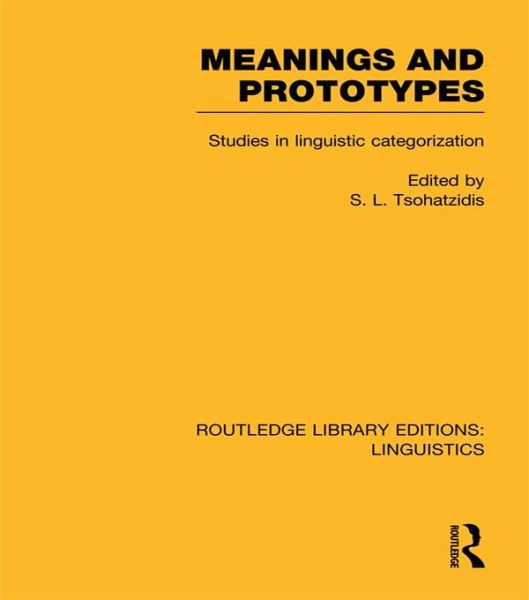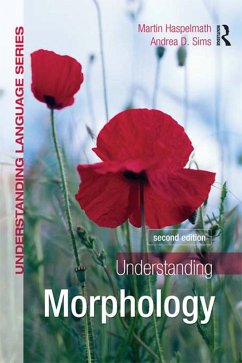
Meanings and Prototypes (eBook, PDF)
Studies in Linguistic Categorization
Redaktion: Tsohatzidis, S. L.
Versandkostenfrei!
Sofort per Download lieferbar
48,95 €
inkl. MwSt.
Weitere Ausgaben:

PAYBACK Punkte
24 °P sammeln!
There are fewer distinctions in any language than there are distinct things in the universe. If, therefore, languages are ways of representing the universe, a primary function of their elements must be to allow the much more varied kinds of elements out of which the universe is made to be categorized in specific ways. A prototype approach to linguistic categories is a particular way of answering the question of how this categorization operates. It involves two claims. First, that linguistic categorization exploits principles that are not specific to language but characterize most, if not all, ...
There are fewer distinctions in any language than there are distinct things in the universe. If, therefore, languages are ways of representing the universe, a primary function of their elements must be to allow the much more varied kinds of elements out of which the universe is made to be categorized in specific ways. A prototype approach to linguistic categories is a particular way of answering the question of how this categorization operates. It involves two claims. First, that linguistic categorization exploits principles that are not specific to language but characterize most, if not all, processes of cognition. Secondly, that a basic principle by which cognitive and linguistic categories are organized is the prototype principle, which assigns elements to a category not because they exemplify properties that are absolutely required of each one of its members, but because they exhibit, in varying degrees, certain types of similarity with a particular category member which has been established as the best example (or: prototype) of its kind.
The development of the prototype approach into a satisfactory body of theory obviously requires both that its empirical base be enriched, and that its conceptual foundations be clarified. These are the areas where this volume, in its 26 essays, makes original contributions. The first two parts contain discussions in which various kinds of linguistic phenomena are analysed in ways that make essential use of prototype notions. The last two parts contain discussions in which prototype notions themselves become the object, rather than the instrument, of analytical scrutiny.
The development of the prototype approach into a satisfactory body of theory obviously requires both that its empirical base be enriched, and that its conceptual foundations be clarified. These are the areas where this volume, in its 26 essays, makes original contributions. The first two parts contain discussions in which various kinds of linguistic phenomena are analysed in ways that make essential use of prototype notions. The last two parts contain discussions in which prototype notions themselves become the object, rather than the instrument, of analytical scrutiny.
Dieser Download kann aus rechtlichen Gründen nur mit Rechnungsadresse in A, B, BG, CY, CZ, D, DK, EW, E, FIN, F, GR, HR, H, IRL, I, LT, L, LR, M, NL, PL, P, R, S, SLO, SK ausgeliefert werden.













